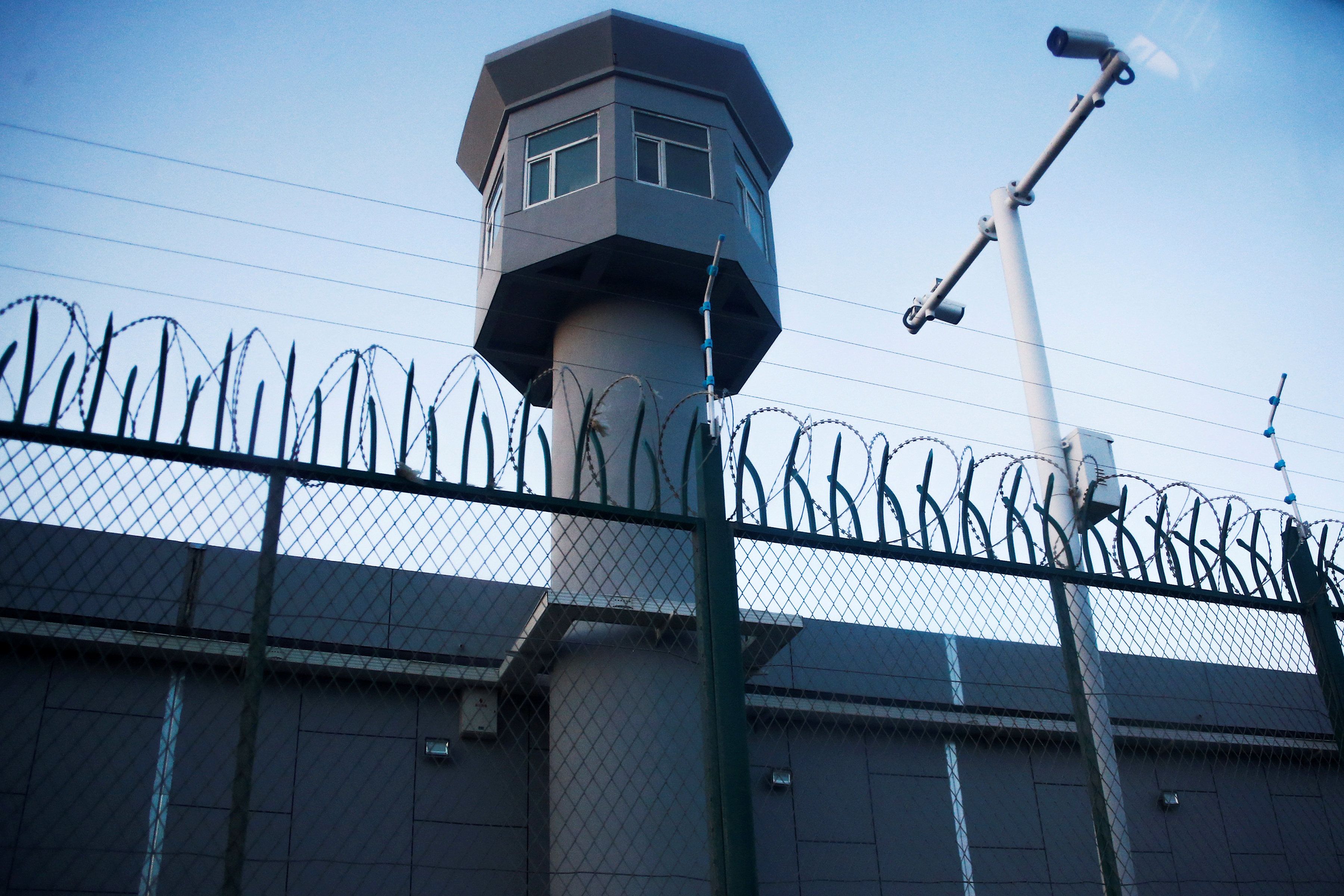November 25, 2019
More details about Xinjiang: The world already knew that China has imprisoned more than a million ethnic Uighur Muslims and other minorities in camps in the country's far-west Xinjiang province. Beijing says the prisoners are volunteers receiving job training. Rights groups say they're locked in mass incarceration "re-education camps" designed to indoctrinate ethnic minorities. But a classified blueprint of the system that's been leaked to the media now details life on the inside. The camps reportedly have watch towers, double-locked doors, and video surveillance "to prevent escapes." What's more, the Chinese state is evidently using the camps to train its artificial intelligence programs for use in mass surveillance. This is the largest incarceration of people based on an ethnic or religious identity since the Holocaust. We're watching for any sign the governments of predominantly Muslim countries, the US, or Europe will take meaningful action against the Chinese government.
Press crackdown in Egypt: Over the weekend, Egyptian authorities raided the offices of the digital publication Mada Masr, one of the country's last bastions of independent investigative journalism. Top editors were arrested, and there's a decent chance it had to do with the site's publication, just days earlier, of a report that strongman President Abdul Fattah el-Sisi's son had been quietly removed from his senior role in the intelligence services due to poor performance. Though Mada Masr is well-accustomed to the security apparatus' techniques used to intimidate journalists, the clampdown has been more aggressive since anti-government protests broke out in September. Egypt ranks 163rd of 180 countries in the 2019 World Press Freedom Index, published by Reporters Without Borders.
A breakthrough in Bolivia? Supporters of ousted president Evo Morales have reached a deal with the new interim government to ease tensions and pave the way to new presidential elections. Under the pact, approved over the weekend by a Congress that Morales' MAS party still controls, lawmakers will appoint a new electoral board that will set the date for a vote early next year. Morales himself will not be permitted to run. Pro-Morales groups and unions have agreed to take down hundreds of road blockades that have strangled the Bolivian economy in recent weeks, and interim-president Jeanine Áñez has begun meeting with pro-Morales activists. But things aren't exactly going swimmingly: Morales' party wants to exempt him from prosecution for backing the blockades, while the new interior minister wants to jail him for the "rest of his life."
What We're Ignoring
The Pope's call to banish nuclear weapons. Look, it's not that we are opposed to eliminating the world's most dangerous weapons. It's just that only one of the nine nuclear powers has a majority of people who consider themselves Catholics—and just 15% of French adults say they are "practicing." Which leads us to the old line: "And how many divisions does the Pope have?"
More For You
Mastercard Economic Institute's Outlook 2026 explores the forces redefining global business. Tariffs, technology, and transformation define an adaptive economy for the year ahead. Expect moderate growth amid easing inflation, evolving fiscal policies, and rapid AI adoption, driving productivity. Digital transformation for SMEs and shifts in trade and consumer behavior will shape strategies worldwide. Stay ahead with insights to help navigate complexity and seize emerging opportunities. Learn more here.
Most Popular
Think you know what's going on around the world? Here's your chance to prove it.
Miami Mayor-elect Eileen Higgins points as she thanks her staff and supporters on the night of the general election, on Tuesday, Nov. 4, 2025.
Carl Juste/Miami Herald/TNS/ABACAPRESS.COM
A Democrat won Miami’s mayoral race for the first time in nearly 30 years. The Republican defeat will ring some alarms for the party – and their support among Latino voters.
Women work in the plastic container assembly area inside the El Oso shoe polish factory, located in Mexico City, Mexico, in its new facilities, after officers from the Secretariat of Citizen Security and staff from the Benito Juarez mayor's office arbitrarily and violently remove their supplies, raw materials, machinery, and work tools on January 17 of this year following a coordinated operation stemming from a private dispute. On August 27, 2025.
Photo by Gerardo Vieyra/NurPhoto
50: Mexico’s President Claudia Sheinbaum is taking a page out of US President Donald Trump’s book, implementing up to a 50% tariff on more than 1,400 products in a bid to boost domestic production.
© 2025 GZERO Media. All Rights Reserved | A Eurasia Group media company.
